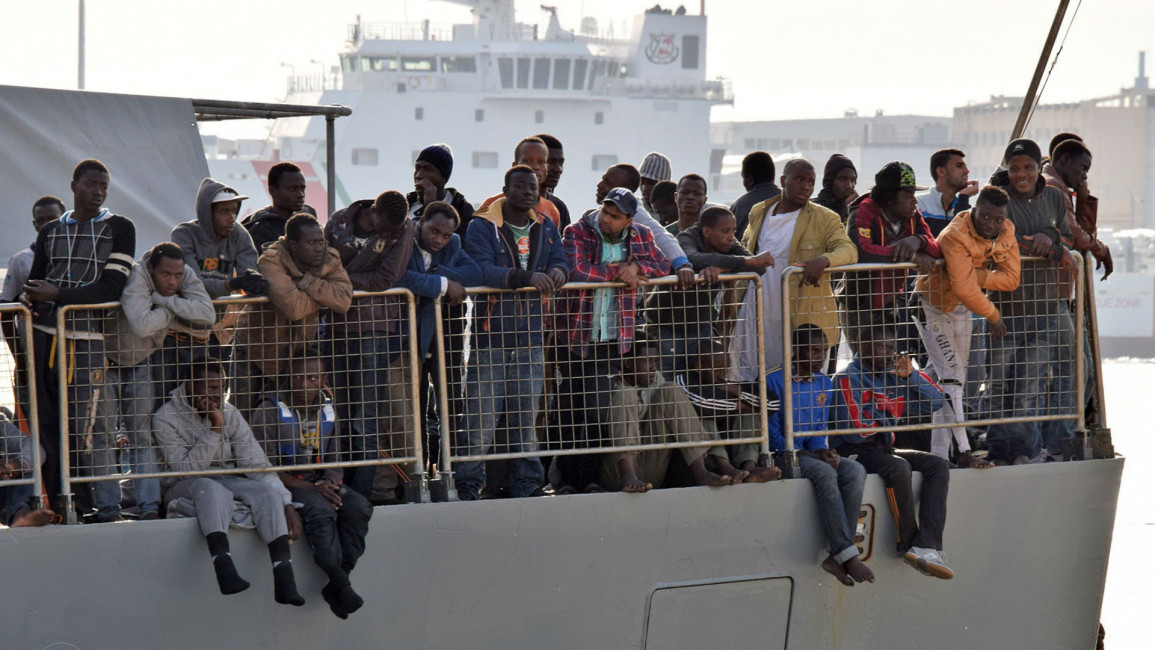
A kinder immigration policy makes good economic sense
At a time when the European Commission is hoping to implement country quotas to ease the burden of frontline countries such as Italy and Greece, to which most smuggler boats head, such alarmist reports in the media obscure what Kathleen Newland, the co-founder of the Migration Policy Institute, called the bottom-line truth: "Most migration is normal and positive."
Unfortunately, she said, instead of fighting hyperbole with fact, more moderate politicians are trying to co-opt anti-migrant factions with milder versions of what are basically xenophobic policies.
| It's a race to the bottom of political rhetoric in many countries. That's what we saw in the UK elections this month. Kathleen Newland |
"It's a race to the bottom of political rhetoric in many countries," said Newland, who spoke as part of a panel sponsored by Washington's World Affairs Council. "That's what we saw in the UK elections this month. Even the Labour party, which has traditionally been more friendly to immigrants, drew some pretty hard lines."
Nine out of 10 people who flee across the sea from the Middle East and Africa do so for economic reasons, to escape severe poverty.
The UK's home secretary, Theresa May, said Europe is encouraging them to attempt the trip by not sending these economic migrants home. Instead, the UK is leading a plan to counter the increase in migrant-smuggling operations with military action in Libya's territorial waters, where most of these boats depart.
British officials are drafting a UN Security Council resolution authorising the mission, which would be under Italian command and staffed by about 10 European countries - and perhaps also NATO forces.
Last month, the International Organisation for Migration (IOM) predicted that 2015's human smuggling tide will be at least as large as last year's - the deadliest on record for migrants lost at sea in the Mediterranean.
Through the first four months of 2014, Italy's interior ministry reported 26,644 migrant arrivals. By April 27 of this year the IOM had counted 25,703.
"What is most striking between this year and last year is the rate of death," said Newland. "We have documented 1,829 deaths so far this year, in waters off Tunisia, Italy and Greece, as well as Libya - about 20 times higher than the same period last year."
The EU's plan stirs controversy
On May 13, the EU Commission introduced a two-pronged plan to both better respond to the flood of arriving migrants and crack down on criminal activity.
The commission is proposing to bring 20,000 refugees to Europe in the next two years, with a quota system determining which EU states will take them. Currently, Germany and Sweden accept almost half the asylum seekers in the EU. However, major pushback against a quota system already is coming from France, the UK and Hungary.
"My biggest worry is that the current crisis will lead to permanent policy changes that will shut the door on the right kind of immigration," said Dilip Ratha, the manager of the Migration and Remittances Unit and head of the Global Knowledge Partnership on Migration and Development for the World Bank.
"We must not make it impossible for people to move away from poverty, crime and discrimination. And in fact, we will never be able to stop them from trying, even if it was moral to do so."
| We will never be able to stop illegal migrants from trying, even if it was moral to do so. Dilip Ratha. |
A case in point is Ahmad Asfour, 23, a young man from Gaza who died on board a smuggler's boat in the fall of 2014.
According to Samir Asfour, his son and two nephews travelled to Egypt after receiving permission to enter for medical treatment.
Ahmad's cousins were the first to hear about the boat to Italy, and Ahmad could not resist; he longed to live somewhere where he could live without fear and receive the medical treatment for his diabetes.
The cost for a spot on the boat: $2,200. Ahmad had brought $1,500 for his treatments, and borrowed the rest from relatives in Egypt.
"He told me he wanted to go to Italy by this boat, and I said, 'No! It's too dangerous,'" Samir said. "I talked to him many times to try to convince him, but he told me he was dying now. He had no hope. He had to try."
Instead of penalising migrants like Asfour, said Ratha, the international community should create more robust channels for legal migration and go after the criminal element, which is present in about the same proportion "as the proverbial needle in the haystack. Let's root out the needle, not burn the haystack."
According to Ratha, international migrants account for only three percent of the world's population, but last year sent $436bn in remittances to their families back home. In contrast, only $135bn was provided to the same low-income countries as aid by donor countries.
"It's poor people who are providing the real lifeline to their families in these areas," he said.
The bottom line, said both Newland and Ratha, is that migration is the foundation of economic development. In fact, migrant labour is a productivity engine in most more-developed countries. Civil rights and the opportunity to move are good for everyone.




